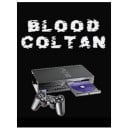
Congo: Millionaires of Chaos
The Democratic Republic of Congo (DRC) is the largest country in Central Africa. It is six times the size of Germany and home to over 100 million people. Armed uprisings, political upheavals and violence have marked its history resulting in almost six million deaths over the last 20 years.
Considered one of the poorest countries in terms of gross domestic product, the DRC has quite a number of millionaires amongst the adult population. At the same time over 70% of the people live on less than €2 a day. And the gap keeps widening.
A wide range of people with different backgrounds makes up this growing millionaire class. Fally Ipupa is a Lamborghini-driving Congolese singing superstar. Patricia Nzolamtina owns a taxi service startup that aims to uplift the lives of its women-only drivers. Robert Seninga is the managing director of the largest mining company in the country. Energy mogul Eric Monga will soon be building a giant dam and hydroelectric powerplant. Finally, evangelist Dominique Khonde has made millions capitalizing on people's faith by selling his "Miracle Juice" cure-all.
In the capital, Kinshasa, and other parts of the country they live in gated communities usually surrounded by security, while the poor live in 15 square meter shanties, working in the mines for hours deep underground.
On paper, the DRC has what it takes to make it one of Africa's wealthiest countries. It has a young and vibrant population and it's rich in natural resources. Yet it's widely considered as a failed state. Roads are not paved, and only 1/5 of the population has access to electricity.
Historically, the DCR has had a rough last 60 years. From the 1960s to 2018, the country was ruled by Mobutu Sese Seko and followed by Joseph Kabila. It is alleged that over €17 billion have been stolen from the country by these two collectively.
Many rebel groups try to seize control of the mines prompting the UN to send 16,000 peacekeepers. The DCR is a significant source of the mineral Coltan, which is used in mobile phone micro-processors. Coltan mining is a multi-billion dollar industry. It is both a blessing and a curse to the country. A kilo is worth $45, and the mines produce 40+ tons a week, roughly about 36,000 kgs. It provides jobs for many but is also the source of major corruption.
There is massive trading in the black market, and the mines themselves are incredibly hazardous. Safety is not a concern, and child labor is rampant.
In the DCR today, there are many opportunities to help one become rich. Many non-millionaire Congolese are working hard every day. There are bread sellers, miners, fishermen, taxi drivers, and even young repatriates returning to DRC from living abroad.
Yet despite the hustle, it isn't a sure bet. Sadly, only a few profit from these natural resources. Only those who are determined - and those who have seemingly questionable morals - will have what it takes to be a millionaire.
Directed by: Guillaume Dumant




I thought all harms of Africa were the past and present colonization, but it's not that simple after all.
Felt depressed watching the Congo Dream. What will this aspirational generation tell their children? You can make it like me as long as you work hard enough?
The question needs to be asked who brought morally defunct and "greed is glory" free market capitalism economy into Democratic Republic of Congo (DRC), and corrupted Congolese minds and souls.
A clear example how to get rich by exploiting the stupid masses. And not only in the Congo.
Next time you upgrade your mobile phone remember that the greed for Coltan has killed more people than any conflict since the second world war.